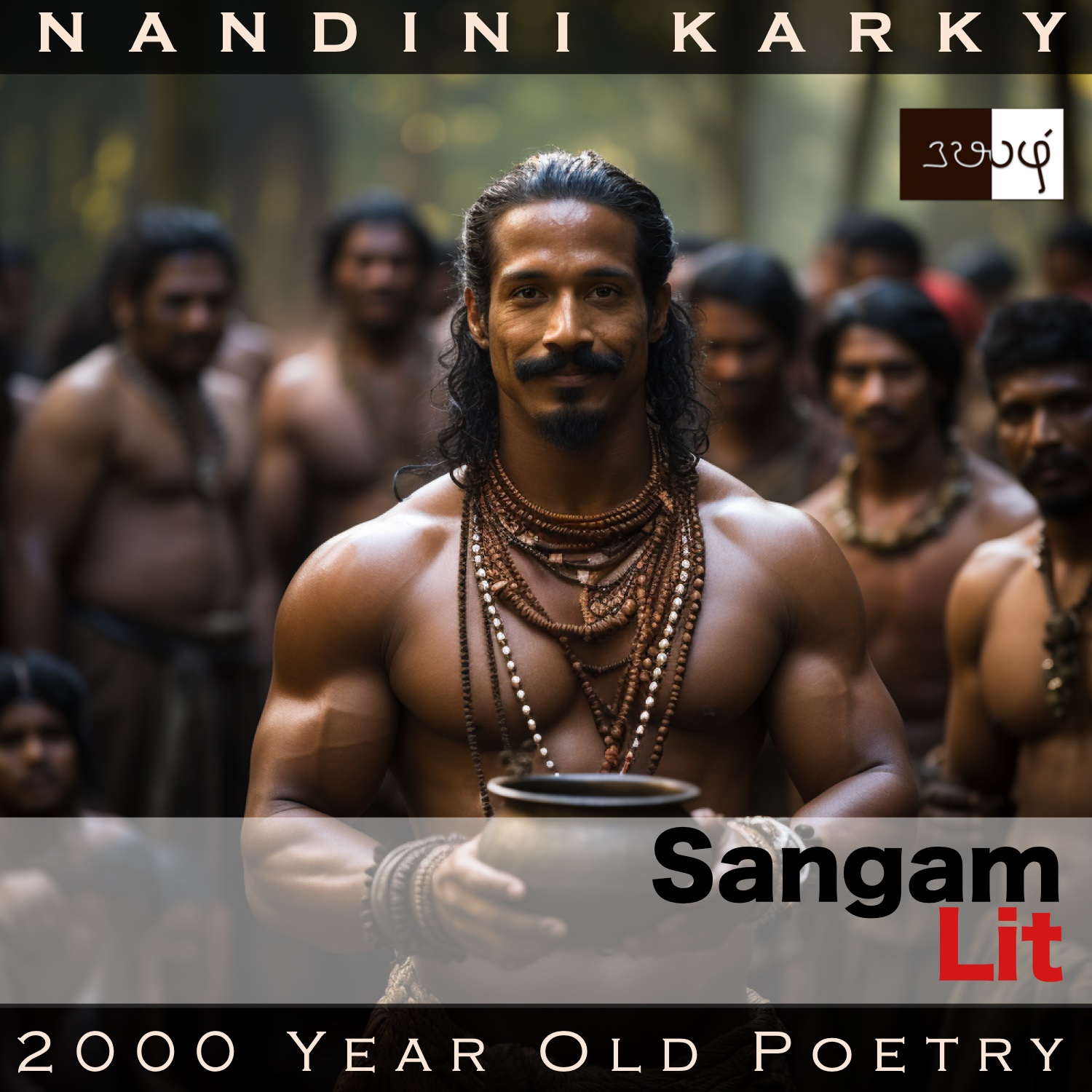Podcast: Play in new window | Download
Subscribe: Apple Podcasts | Spotify | Amazon Music | Android | iHeartRadio | TuneIn | RSS | More
In this episode, we observe the relationship dynamics between a king and his soldiers, as portrayed in Sangam Literary work, Puranaanooru 298, penned by the poet Aaliyaar. The verse is situated in the category of ‘Karanthai Thinai’ or ‘Recapturing’ and indirectly reveals the noble virtues of a leader.

எமக்கே கலங்கல் தருமே; தானே
தேறல் உண்ணும் மன்னே; நன்றும்
இன்னான் மன்ற வேந்தே, இனியே
நேரார் ஆர் எயில் முற்றி,
வாய் மடித்து உரறி, ‘நீ முந்து’ என்னானே.
A verse of few lines brimming with enigma. The poet’s words can be translated as follows:
“He used to offer the strong, unfiltered toddy to us, and take the diluted, clear toddy for himself. But our king isn’t a kind man because now, after surrounding the enemy’s formidable fort, cupping his lips, he does not shout, ‘You go ahead’!”
Time to delve into the intricacies. The poet speaks in the voice of a soldier at a feast given by the king after a battle and describes how the king used to offer sediment-filled toddy to the soldiers and take for himself, clear, filtered toddy. This far, I had been thinking that the well-filtered toddy was the much preferred one but this verse topples my surmise about preferences in Sangam times. What the soldier means here is that that the king offers the tastier, murky and strong part of the drink to those below him and is content having the diluted, filtered and weak toddy. The soldier is glorifying the king’s generosity in sharing his delicacies. Next, the soldier makes a shocking, contrary statement that the king isn’t kind at all. He concludes by supporting his statement with the words that when it’s the time of attack and when he has surrounded the enemy fort, the king never asks his soldiers to go ahead and face the enemy’s fire but does that himself!
This is to say that the king was so kind in offering the best drink to his soldiers but does not allow them to repay that kindness in the battlefield. There are multiple ways to look at these words. One, the king does what he does, with no expectations whatsoever. He doesn’t think, let me give this best drink to them and then I can rightfully ask them to give their lives for me. The king is noble in his generosity. However, from the soldier’s point of view, they feel indebted to the king and they think that must repay the love showered upon by him. Both characters are justified in their stances and with these meagre words, the verse shows us the multiple levels of complexity in human expectations and interactions. In a lighter vein, this verse brought before my eyes the ‘Asterix & Obelix’ comics, set in 50 BCE France, and the way, the character Obelix, someone always ready for a fight, would sulk when he felt left out of the prime action. Obelix would totally empathise with this Tamil soldier from his time!




Share your thoughts...